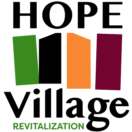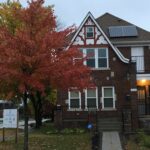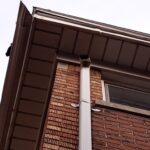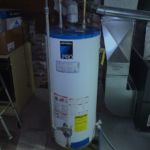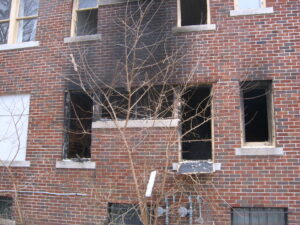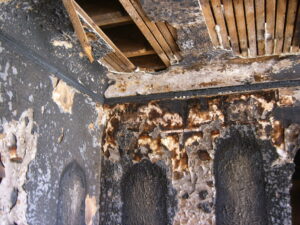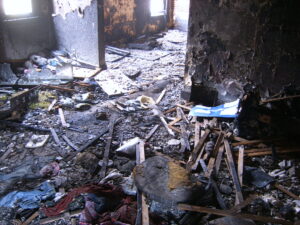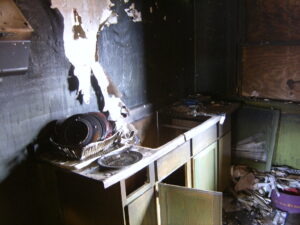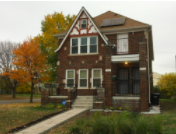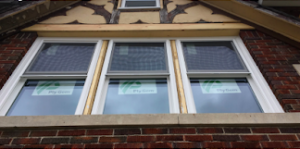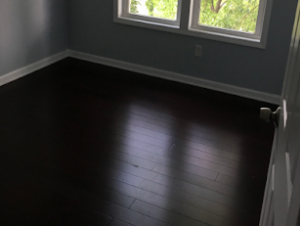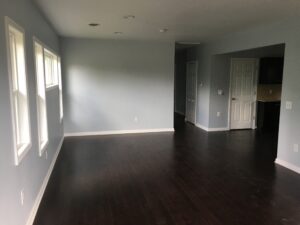Sustainable, Affordable Housing
The Challenges
- Most of the homes in the Hope Village neighborhood were built prior to 1950, when utility costs were low and energy efficient construction was not available.
- The price of energy has increased at more than the rate of inflation over the past 10 years, and is likely to continue to do so.
- Detroit has one of the highest housing cost burdens in the country – and many households in Detroit are paying more than 15% of their income on energy costs.
- Electrical outages in Detroit are frequent and often extended – leaving residents without power for days at a time, sometimes in the middle of winter.
- For more than a decade, residents have not had access to affordable funding needed for major repairs and for energy efficiency improvements.
- More than 70% of Hope Village residents are renters, and close to 50% of Hope Village residents live at or below the poverty line.
The La Salle Eco-Demonstration Home
Built in 1926, the La Salle Home started life as a typical two family flat near the center of the Hope Village neighborhood. By 2012, the home had had two fires, had been foreclosed for non-payment of taxes a number of times, and had become a neighborhood eyesore and problem property.
By 2019, HVR had acquired the home from the Wayne County Auction, cleared title, and renovated it to the highest standards of energy efficiency and renewable energy, with a focus on sustainability. It is now the office headquarters of HVR and a neighborhood center. The project is on track to be certified as the first LEED platinum home rehab in Detroit, and is a bustling neighborhood hub of activity.
La Salle Home Features
Interested in finding out more about the La Salle Eco Demonstration home? Select a link below to do a deep dive into the Clean Energy/Energy Conservation features, the Healthy Home features and the Water Conservation features!
Energy Efficiency
Energy efficiency improvements can dramatically reduce energy bills and can also make homes more comfortable. Through a partnership with SEEL and DTE, Hope Village Revitalization’s Energy Efficiency Assistance program has assisted over 70 homeowners and renters with a range of energy efficiency improvements, including:
Old
- Energy Inefficient furnaces.
- Energy Inefficient Water Heater
- Little/No Insulation
- Drafty Windows and doors
- Old refrigerators
New
- High Efficiency furnaces
- Energy star water heaters
- New attic and basement insulation
- Infiltration reduction measures
- New Energy Star refrigerators
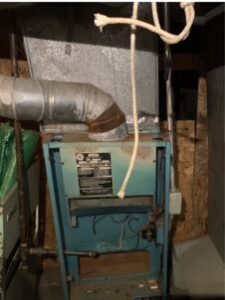
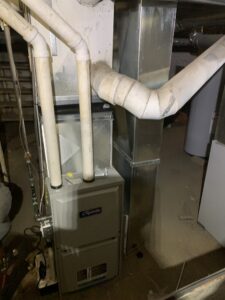
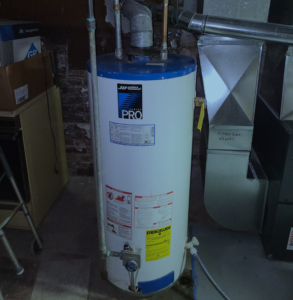
Through a partnership with EcoWorks, Hope Village Revitalization has been able to distribute more than 50 Healthy Home Kits to Hope Village residents, with small energy savings that add up, including smart power strips, LED light bulbs, weather stripping, door sweeps, and more!
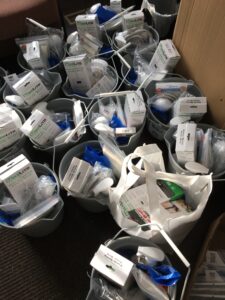
Minor Home Repair
This program provides positive, direct housing improvement support to income-qualified households in the Hope Village neighborhood. Exterior home repairs can often make the difference long-term and preserve the equity and presence of a longtime family in a neighborhood such as ours. In addition, the neighborhood as a whole benefits from the preservation of homes and the improved appearance.
As funds allow, grants of up to $5000 are available to eligible homeowners for essential exterior home improvements to ensure residents have safe, accessible, healthy housing, and to support a stable neighborhood.
The 2023 application period is closed – check back for more information when the next application period opens.
Sustainable Community Builders
The Sustainable Community Builders project is in the pre-development phase. The goal of this project is to take the lessons learned from the La Salle Eco-Home to the next level by creating, structuring and financing a plan for rehabbing a critical mass of naturally occurring housing in the HOPE Village neighborhood, making those units both affordable and sustainable.


HVR plans that all buildings developed through the Sustainable Community Builders Project will meet standards of affordability for renters between 30% and 80% of Area Median Income. The model will also include a community ownership component, which is an essential element of long-term sustainability.


The first project focuses on renovating 50 to 100 units in a cluster of multifamily buildings, retrofitting them to be powered by solar energy. Eventually single-family units will also be incorporated. The project is part of the broader vision of HOPE Village Revitalization to create the conditions for sustainable and equitable investment in this low to moderate income neighborhood.
Older buildings and homes in Detroit have high energy costs, contributing to a growing gap in energy affordability as well as in access to energy efficient technology. Moving into the future by demonstrating a sustainable solution to energy poverty in the context of affordable housing, the Sustainable Community Builders Project aims to close the gap in climate and disaster resilience between affluent and LMI neighborhoods.


Working with several partners, including Renting Partnerships, Soulardarity and The Cooperation Group, Hope Village Revitalization has demonstrated the feasibility of the project and is working on the pre-development phase.
